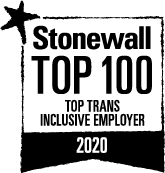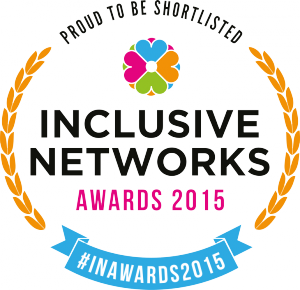Stonewall Education for All 2014
The Stonewall Education for All Conference 2014 took place on Friday 4 July. The day was split into five main parts: an opening session, two breakout sessions (chosen from two groups of six sessions), a staff plenary (a student plenary was run in parallel) and a closing session. The conference was mainly targeted at schools, but a number of the ideas and initiatives shared throughout the day could be applied in higher education.
Key points from the day included that:
- some believe that LGB equality has been achieved, but in fact there is still a long way to go;
- expressions of homophobia and biphobia are far from uncommon and are exacerbated by silencing homosexuality and bisexuality;
- small steps can make a big difference, such as talking about sexual diversity and establishing a zero-tolerance approach to homophobia and biphobia;
- Stonewall’s #NoBystanders campaign highlights the importance of not being a passive bystander – it provides advice on how to be an active bystander;
- people in the process of coming out and those yet to come out face many barriers – these can be minimised through good support.
Best practice relevant to York St John University included:
- putting up posters, both original and Stonewall’s own;
- showing Stonewall films (including #NoBystanders, FIT and FREE) and viral videos (including When Did You Choose to Be Straight? and Stand Up!);
- public displays, such as messages or doodles on large sheets of paper, or #NoBystanders pledges;
- events such as talks and debates;
- pro-equality recognition schemes;
- senior leadership buy-in and commitment to equality from all staff;
- training, both in-house and Stonewall’s own;
- consultation to identify issues;
- inclusive curriculum and services.
These are denoted throughout by a superscript dagger symbol (†).
Opening session
Stonewall’s Acting Chief Executive Ruth Hunt (Chief Executive, as of Monday 28 July) opened the day and recalled a time when her English teacher noticed her reading lesbian literature and supported her by saying “if you thought you were a lesbian, you don’t need to sleep with a man to prove it”.
Director and Founder of Kids Company, Camila Batmanghelidjh CBE, then spoke about spirals of violence, emphasising that bullying must be tackled before the perpetrated becomes the perpetrator. She stated that interventions must be robust. She felt it was important to note that the violator has an important reason for their actions (something led them to where and whom they are), but that this does not make the violation okay.
TV presenter Dr Christian Jessen spoke about his personal experiences of coming out, accepting his own sexuality and being an openly gay public figure. He noted that due to a lifetime of conditioning, he still gets a slight twinge when he proudly announces his sexuality. He raised the issue that websites related to sexuality are often blocked on school computers. Christian stressed the importance of personal, social, health and economic education (PSHE).
Actor Charlie Woodhouse stole the audience’s hearts, speaking about his experience of working on Stonewall’s film FREE, and the positive reception he received from his school. He ended by proclaiming “together we can change the world”.
Head of Education at Stonewall, Luke Tryl, talked about some of the positive steps that had been made:
- Stonewall had launched a new website for primary schools.
- Following feedback that training was too London-focused, the Education team had toured Britain.
- There were more role models than ever before, with a greater number of public figures coming out.
- Increasingly, schools were putting up posters that indicated to young people that they would be accepted if they came out†.
Luke stated “we’ve done a huge amount together and things are getting a lot better for lesbian, gay and bisexual students everywhere, but by Gove, there’s still a lot more to do”. He went on to highlight some of the challenges that remained:
- More than half of homophobic crimes are committed by people aged 16-24.
- 93% of parents wanted schools to be proactively tackling homophobic bullying.
- The concept of ‘boy’s activities’ and ‘girl’s activities’ was still ingrained; young people were still conditioned into gender roles.
Luke ended by saying “let’s go back into our schools and make them places where every young person can grow up and reach their full potential”.
After all of the speakers had given their talks, a question and answer session was held. A question was raised about challenging fixed ideas about gay people. Charlie argued that we need to teach people that everyone can be themselves and that we do not all need to be the same. We need to understand that difference exists; that everyone is different and that that is okay. Camila pointed out that we must not confuse equality with everyone being the same. She offered a more subtle and nuanced perspective: equality is about giving permission for everyone to be different and to be respected equally.
Another question touched on Stonewall’s position with regards to trans representation. Ruth noted that they were acutely aware of shared issues (with LGB people), but also of differences. Historically Stonewall had opted to represent only LGB people, but to support trans organisations. However, Stonewall was holding an open consultation on the matter and would later hold a round-table discussion with key stakeholders, both of which would inform the organisation’s approach going forward.
First breakout session: ”Using ‘gay’ the right way’: tackling homophobic language’
Next, I attended a breakout session chaired by Richard Lane, Media Manager at Stonewall. Richard showed the #NoBystanders short film†.
First to speak were representatives of Chew Valley School: year eleven students Danni Ireland and Holly Dando and Head of Personal, Social, Health and Religious Education Louise Pope. They highlighted a large amount of best practice:
- They had put up both Stonewall posters and posters made by students†. Louise also brought the audience to the attention of a poster by graphic designer Alison Rowan which read ‘That’s so… [word-cloud-like graphic of adjectives] …and you choose gay? Buy a dictionary’†.
- Louise started a project; the project team developed into a steering group and then an equalities team.
- They invited the openly-gay former soldier James Wharton to give a talk, which had been very inspiring and memorable†.
- For LGBT History Month, they asked students to do a doodle for diversity, which started out as one sheet of A1 paper and became ten†, and also played Stonewall’s film FIT on a loop in the dining room during lunch†.
- A scheme had been set up in which staff could be awarded Equalistars for proactively promoting equality. Staff had become very competitive in pursuit of these, and there were plans for rolling the scheme out to students†.
- The senior leadership team had agreed that the school would treat homophobic bullying on a level with racist and sexist bullying†.

“Buy a Dictionary” by Alison Rowan.
Louise had observed that students stop using homophobic language if you tell them that it is damaging. Students had started using the term ‘boyfriend/girlfriend’ instead of assuming one or the other when asking if fellow students had one. Louise finished by noting that care must be taken in preparing students for the wider world; two male students went on a date to the cinema and received stares from members of the public when leaving†.
Next to speak was Paul Daintry, Curriculum Leader for Creative Arts at Lammas School. When he moved into education from theatre, he was struck by the casual use of homophobic language by students. He came to realise that this was the case because no one was doing anything to tackle it, including him. Limited resources proved to be a barrier; events like the Stonewall Education for All Conference were out of the question. However, Paul set about doing what he could within the financial constraints, including:
- putting up posters†;
- setting up a staff group;
- commitment from staff to challenge and report all instances of homophobic language†;
- attending assemblies.
A new member of staff told Paul that when he came for an interview he knew it was the right place because of the posters around the school telling him that he was okay to be himself.
The school recently came third in the Adobe Youth Voices Awards in the music video category for LoveMission, a song about homophobic bullying. Both the song and the video were made by students. This was screened to the whole school.
Paul’s closing message was that it is possible achieve positive outcomes even if the initial input in terms of resources is small.
The final speaker in the panel was Paul Faci, Director of PSHEE (PSHE) at Bexleyheath Academy. Paul had:
- put up Stonewall posters and the school’s own posters†;
- involved he parent forum;
- got the support of the governing body†;
- attended Stonewall training†;
- conducted a stratified sample of 600 students asking what they thought the issues were, which informed target areas for assemblies and staff training†;
- showed the When Did You Choose to Be Straight? video in staff training and asked staff to show it in class†;
- asked students sign a pledge for the #NoBystanders campaign, but only if they were genuine about challenging bullying – pledges were displayed on a wall in the school.

Will Young, who was a member of the panel for the closing session, holding a #NoBystanders pledge card.
Paul also brought the audience to the attention of the short film Stand Up! by BeLonG To Youth Services, which ties in well with the #NoBystanders campaign.
One audience member was from a school where the majority of students were Muslim and argued that the best way to tackle homophobia in strongly religious environments was tackle it head on and not skirt around the issue†. Another audience member stated that it was important for training to be for all staff and not just teachers†. Another noted the need to consider the impact of parents’ attitudes and how to negate any negative effect.
Second breakout session: ‘Supporting gay students and setting up youth groups’
The next session I attended was chaired by Fay Beverton, Education Champions Co-ordinator at Stonewall. She opened with a few key points:
- LGB young people are much more likely to have suicidal thoughts – one in five have tried to take their own life.
- Youth groups can offer support.
- 72% of LGB young people say that they do not have or do not know that they have an LGB youth group in their local area or school.
- 50% of LGB young people would like to go to an LGB youth group.
First to speak was Ben Dew, Team Leader for Youth Support and Education at Allsort Youth Project. Through his work in Brighton, he had found that off-site (outside of school) youth groups tended to work well.
Next was Harriet Rye, Head of Year at Acland Burghley School. Her school was very multicultural. They had a gay-straight alliance called LGBT/Connected, which was advertised at assemblies. They arranged a special assembly in which there was to be a debate between a gay Christian, a gay Muslim, a gay Jew and a gay atheist (unfortunately the Christian and the Muslim dropped out)†. Harriet felt that staff who were out and open and positive discussion of LGBT matters were two of the key ingredients for a successful LGBT school group.
The final speaker in the panel was Lucy Wake, Campaigns Officer for the University of Nottingham LGBT Network. She noted how when she was at school, LGBT stories were all but invisible, citing two examples:
- The study of Carol Ann Duffy did not touch upon how being a lesbian informed her work†.
- The study of the Second World War omitted the persecution of homosexuals†.
She emphasised the need to acknowledge LGBT people in the curriculum; to show that it is okay to be LGBT†. She noted the need for role models, making the observation that there were many more out media icons now than in the past. Her main message was that we need to do more than just challenge homophobia; we need to be pro-actively inclusive. She suggested introducing femidoms alongside condoms and celebrating LGBT History Month as two ways of achieving this†.
Staff plenary
Returning to the stage, Luke Tryl provided a few key facts:
- Students are bullied less for being openly LGB than they are for being non-conformist.
- Almost nine in ten primary school teachers and eight in ten secondary school teachers have not received any specific training on dealing with homophobic bullying.
- The new curriculum does not feature the words ‘gay’ or ‘sexuality’.
- Not talking about same-sex relationships leads young people to seek dialogue elsewhere, such as via adult dating sites and apps.
Closing the staff plenary, Ruth Hunt commented that privileged LGB people think that everything is done, but it’s not. Even as Acting Chief Executive as Stonewall, when she and her wife leave zone two on the tube, she finds they tone down their affection and become ‘less gay’.
Closing session
In the closing session, Ruth Hunt spoke informally with three media icons; the bulk of the time was spent recounting coming out stories.

The final panel, from left: Ruth Hunt, Will Young, Alicya Eyo and Oliver Beach.
Photo by Luke Cameron, originally featured on The Good Deed Diary.
Ruth was first. She came out when she was thirteen. She fell in love with a woman when completing The Duke of Edinburgh’s Award. When she was sixteen, she moved to Birmingham and engaged in high-risk behaviour to explore her sexuality. Around that time her parents found out about her sexuality and reacted very negatively. She later became the first openly lesbian woman to be President of Oxford University Student Union. She moved to London and got a job at Stonewall in 2004. Three years ago, she entered into a civil partnership and she is now Acting Chief Executive of Stonewall.
Next was singer Will Young. He had no role models. He knew he was gay from the age of five, when he became attracted to a male character in a soap opera. The only representation of gay people he saw was with regard to AIDS and HIV, so to him it symbolised death. When he came out, his parents were upset about not having grandchildren; he noted that family often think about the impact on them before the happiness of the individual.
Next was one of the stars of the BBC Three documentary series Tough Young Teachers, Oliver Beach. At school, he was heavily bullied, which led to attempting suicide. Towards the end of school, he confronted the bully and told him that he did not realise the pain he had caused, to which the bully responded by saying that he was just joking. He did not come out until his twenty-first birthday, under the influence of alcohol, when at his first party with other gay people whilst at university in New York. He found it to be a very liberating experience.
Last to share their story was actress Alicya Eyo. She moved to Liverpool from London and went to a Catholic school for girls. She put her emotions and feelings to one side, knowing that she would have a particularly difficult time if she came out. At seventeen, her mother asked her if she was gay. She denied it, and was very defensive, but her mother was very supportive and pushed her to acknowledge it. She ended up being bullied at school, went back into the closet, started dating men, and did not come out again until she left school.
During the final question and answer session, the narrow portrayal of lesbians was noted, and it was argued that media icons should not be obliged to come out; it should be a personal decision.
Check out #edforall on Twitter for more thoughts and ideas from the conference.








